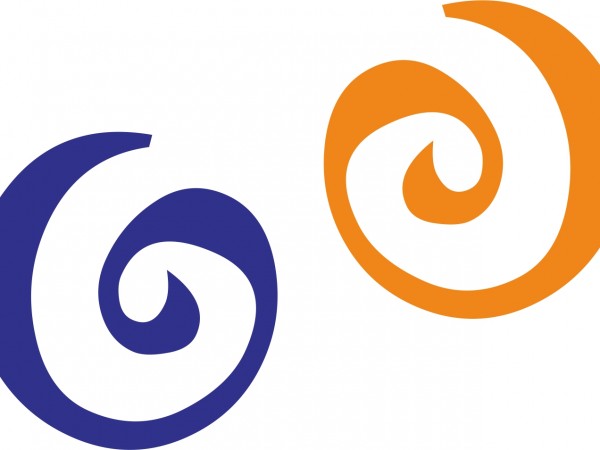Posts from the ‘happiness & wellbeing’ Category
Hear from Hannah, the Director of HR, about what we have been up to, to grow happiness and wellbeing amongst the staff at Perrywood, an award winning garden centre based in Essex and Suffolk. Always great to hear from a happy client!
If you would be interested to find out more about how I can help you with workplace happiness at your business (Perrwood is an SME with 200 staff) then drop me a line Hello@mindtrip.co.uk
Your emotions count!
“If you experience a healthy dose of positivity and you can sustain it, it can also empower and energize you to deal with adversity in a more constructive way. In that sense, resilience and a positive outlook are highly intertwined. If we cultivate our ability to sustain positivity, we are simultaneously cultivating our ability to bounce back from negativity.”
-Pelin Kesebir ( Centre for Healthy minds)
Latest research from the centre of healthy minds run by Richard Davidson builds on his fascinating book the emotional life of your brain. In the book he talks about the links between our emotions (our affect) and our wellbeing. Much of mainstream mindfulness focuses more towards the focus element of mindfulness and our ability to manage our attention. What I love about Richie Davidson’s work is that it focuses on our emotions too and importantly the study of what sustains psychological wellbeing rather than purely focusing on disorders and when things go wrong.
More and more attention is beginning to be paid to wellbeing initiatives at work. Moving from just focusing on ad hoc events to looking at wellbeing as a strategic foundation to build a business up from. Taking key policies, processes and initiatives and putting them through a wellbeing lens.
Typically people then will ask what about ROI, productivity and economic and profitability impact. However I would advocate that as we move into the 2020s the imperative will and should be more around humanity and humane business practices. Building businesses that make a difference and don’t cause untold suffering to human lives.
So it is also good to see a new research report that also is beginning to build the economic case – particularly if you work in finance and retail.
It also shows a strong correlation between employee satisfaction, customer loyalty, productivity and profitability. What’s not to like?
Interested in undertaking a strategic wellbeing health check in your workplace? Do get in touch hello@mindtrip.co.uk 07801 246113
mindtrip September reflections on burnout and compassion
View this post in your browser (http://us5.campaign-archive1.com/?u=049ea8ce75ea476c2622e0a13&id=ee7bee8bc4&e=[UNIQID])
mindtrip reflections of ideas, thoughts, hints and tips and book recommendations focused around building a flourishing work environment.
With the first days of Autumn, we come to a time of nights getting longer, mists and a sense of letting go and releasing things that have been a burden. In this Reflections I want to focus on burnout, why it happens and what we can do to build greater balance in our lives and explore the concept of compassion and particularly self compassion as a mediator to the stresses and strains of our increasingly ‘always on’ world. This Reflections is based on the work of Paul Gilbert (http://www.compassionatemind.co.uk/index.htm) and Kristin Neff (http://www.self-compassion.org) .
How often do you go through a day carried in a stream of busyness and doing? Constantly running from meeting to meeting, call to call or rushing to get things done. In doing this, how often do you get chance to take stock of where you are at your deepest level-listening to that small voice or feelings that get trampled on in the rush or pushed aside-until we have more time to think things through?
Mindfulness is a way of being in the present moment so that we become more aware and fully present, noticing what is unfolding moment by moment and allowing a sense of spaciousness and non judgement. Mindfulness encourages us to wake up to our deeper selves, it shapes us and deepens our self and other compassion along with our wisdom and wellbeing. However in practicing mindfulness, we are not as such trying to get anywhere other than to be fully present and getting out of our own way.
Why might this be important in the world of work? It is about the quality of attention you are giving while you are at work and for that matter out of work. Can you trust the quality of decisions that you are making? Are you listening to your deeper intuitions? Have you brought your whole self to bear? In life decisions are you connected with what is deep and best within your self rather than what is at the top of your ‘mind’ or what you are reacting against?
The following video filmed by Action for happiness at their evening with Jon Kabat Zinn which I attended in March, talks more about mindfulness and gives you an experience of what it is all about:
In my coaching with individuals and supporting Leaders and Managers within Organisations the topic of resilience, positivity and ‘can-do’ attitude generally comes up. The following are books that talk about concepts, tools and perspectives that are at the heart of my coaching with both individuals and organisations. Each book interlinks with the others and focuses on the relationship between how we see the world and our emotional and behavioural reaction to it.
To help us in developing our resilience, through coaching, it is useful to explore the links between our thoughts, actions and emotions when people are resilient and when they are not.
Wellbeing at Work Survey for both Individuals, Teams and Organisations
January 15th, 2013
Heather Johnston
Update: This survey has now been phased out. I do have a number of other surveys I use please do contact me to find out more.
At the end of last year, to further develop my services to sustain wellbeing within organisations in these current tough times, I attended a Masterclass with Nic Marks on a new Wellbeing at Work survey. Nic is known for his great work on wellbeing and developing the happy planet index
The survey is available to individuals and small teams (up to 5) and for a small cost of £6 per head (plus VAT) an organisation/team can survey its staff and gets results broken down by their own chosen demographics. Larger organisations will be able to take advantage of lowering marginal costs per user if they choose to survey the whole organisation. Small organisations can for the first time have a state of the art staff survey at an exceptionally reasonable cost.
The survey is based on a dynamic model of wellbeing developed with leading experts and is uniquely grounded in the latest psychological findings around wellbeing and happiness. Each question has been carefully selected to reflect what the evidence says impacts well-being at work and has been tested with thousands of respondents.
The wellbeing survey results give a more complete picture of employees’ experience than standard engagement surveys as it includes engagement and stress but also employees’ positive emotional experiences. For Chief Executives, Directors and HR departments the results can be compared between teams or by other demographics and the results act as a “mirror” reflecting back what is happening within the organisation and help people to have insights on how work could be happier.
What I like about the survey is that it provides instant individual as well as organisational results for real-time feedback, provides a simple interface presenting results in traffic light colours and has National benchmarks automatically built into the questions, providing individuals, teams and organisations with an anchor point to understand and compare scores. The survey can also be repeated over time to measure any change. To find out more have a look at the survey website
If you are interested in taking a temperature check of your organisation or team and are committed to some follow up action I believe this is a great tool to open up some very important discussions around sustaining and improving happiness at work. As research shows happier employees are more productive, healthier and creative and are more loyal and provide better customer service to clients. A win-win!
Please get in touch if you would like to find out more!
It is the time of year for thinking about resolutions and considering what the future might hold. Many of the goals set will last a matter of days and some will last the test of time. Key in thinking about the goals you set yourself at this time of year is whether they are intrinsically motivating to you- are they something you feel you ‘should’ or ‘must’ do rather than something that you are genuinely interested in.
In the following, I have listed some thoughts from the fields of positive psychology and wellbeing to help you in setting yourself up for a happy and healthy 2013:
1. Take a moment to look back at 2012- what were the high points, what made them high? Try and relive them in your mind and savour the moments. By building savouring into your everyday you will start to look out for the good things as they happen. By taking notice of your surroundings and what makes you feel alive you will start to become more and more aware of what feeds you and what matters to you and build more of these experiences into your daily life.
2. Set some goals. By becoming clearer about what you would like to happen we set up a chain of events that create an energy and momentum working behind the scenes on these goals. Trust your creative mind to come up with some ideas rather than feeling that you have to plan everything down to the finest detail. Recognise that goals are statements of intent and that key is the movement towards the goal and the learning along the way, not necessarily whether you achieved it totally or not. Recognise the level of mastery you are obtaining. Finally, make sure that the goals you set yourself inspire you, work to your strengths and move towards something positive rather than away from something negative.
3. Find ways to connect with people in as many ways as you can to help build a support community for you and for them.Try and ensure a balance between virtual connection and physically being present. Give people the luxury of your total attention (minus the technology distractions)
4. Find ways to get physically active in a way that works for you be it running, walking, dancing or gardening
5. Try something new, get curious about something and find out as much as you can. Anything that helps you learn and do something that you haven’t done before. And when you have done that find something else that engages you…
6. Think about how you might give something for the benefit of others. Be it time, money, knowledge, expertise or anything else for that matter. It feels good to help others.
7. Find ways to build creativity into your life, get curious- do something that you have never done before or that surprises you. Do something completely different to what you would normally do and challenge yourself. Once you have mastered something new increase the challenge to maintain your level of stimulation and keep boredom at bay!
8. Give yourself permission to relax, stop, recharge and reflect!
Great article about intrinsic and extrinsic goals and their link to a person’s overall happiness. We all need money but it is not that that fundamentally makes us happy- check out the article to find out more about what is driving you and whether that is good for you! money and happiness







